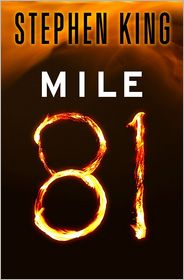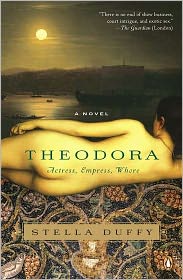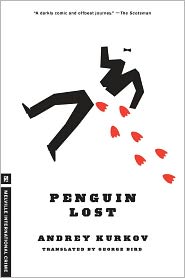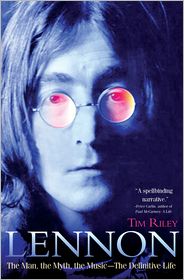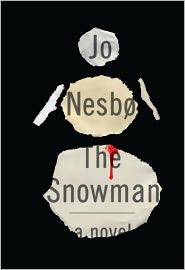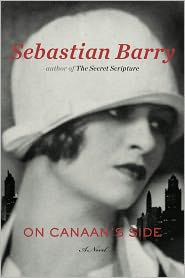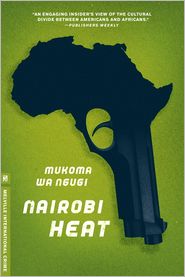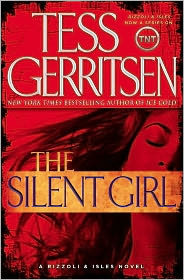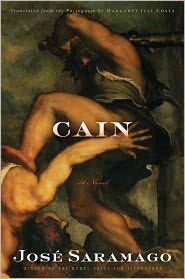
“The history of mankind is the history of our misunderstandings with god, for he doesn’t understand us and we don’t understand him.”
Cain is one of those books that one truly enjoys to read; and I did. Saramago in this, his last offering before he passed away, recreates in his own special way the life of Cain and offers the reader, especially the one who’s not too attached to the words of the scriptures, a chance to have a few good laughs. While reading it, I dare to admit that, I found myself agreeing time and again with the somewhat heretical views of the author.
At the beginning it was not to the Word, but simply the creation of the world, since, as we read, when god made man forgot to give to him the gift of speech. However, after he did give it to him maybe he came to regret it because if he hadn’t then Cain wouldn’t be able to speak and thus verbally annoy and abuse him for all eternity.
First things first though. According to Saramago the first people were less than perfect. They were kind of stupid and full of flaws. When they were expelled from paradise actually “Adam and Eve resembled a couple of orangutans who had stood upright for the first time.” However, as time started going by they improved a bit, since they now had to work to make a living. As the story goes they set up home on the banks of the Tigris and Euphrates rivers, where with the help of the animals that followed them to exile, they started working the land. Of course at the beginning things were not so easy for them so Eve, every now and then, had to take a walk towards paradise and beg the angels to give her some fruits. However that didn’t last for too long since sooner rather than later they started becoming self-sufficient and independent until someday, without quite understanding how or why, they even became parents. Abel and Cain are their famous kids, but of course they had many more. Abel, the innocent one according to the official story, was in reality an infuriating character, somebody who found joy in provoking and insulting the others and who always thought that he was the leader of the pack. He really was scum, thus Cain, who could suffer his behavior no longer, ended up killing him. And that’s exactly how his long skirmish with god has begun. And that’s exactly when his long journey started; a journey that would carry him back and forth in time, a kind of a road trip into the Old and the New Testament, full of surprises and with many not so light touches of humor.
Cain, in this book, is portrayed as the first hero in Hebrew history; someone who’s extremely daring and not in the least afraid of death, and who doesn’t miss a chance to give god a piece of his mind. In order to do that he travels a lot, so we meet him in Sodom and Gomorrah, at the Sacrifice of Abraham, on Noah’s Ark, at The Tower of Babel, in the desert visiting Moses’ camp, while he drops by in the New Testament as well to act the role of the Good Samaritan. Wherever he goes he uses the name of Abel, and at every single place he encounters the ugly face of god; a god that he’s determined to oppose in every way. He’s not your normal kind of hero, he seeks no redemption, but instead he asks of god to apologize to him for mistreating him.
This is not one of those books that I would recommend to everyone because of its subject matter. However I’m sure that those who are familiar with the author’s work, as well as with the writings of Norman Mailer, Robert Graves and Nikos Kazantzakis, will truly enjoy reading it. Saramago doesn’t only seem to want to provoke the reader, but also to say to him that just believing something without questioning it, is the easy path; the one that leads to ignorance and cheats him of his free will and independent mind.


